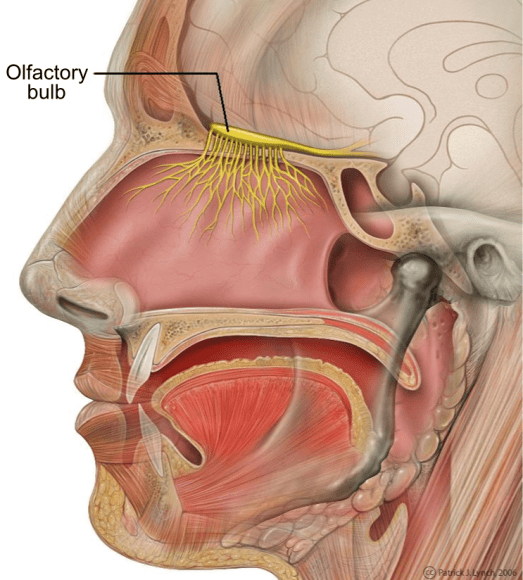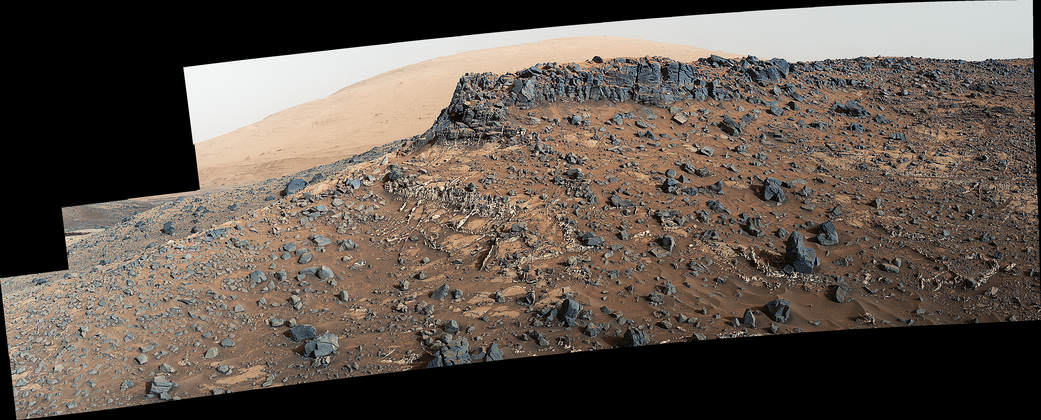Intellectual curiosity is a great gift. It’s fulfilling to ponder the great questions of existence: Will the Universe die of heat death after it’s expanded for billions and billions (and billions) more years? Is there something outside of our Universe? What’s on the other side of a black hole?…and…What does Mars smell like?
Seriously.
What may seem to be a frivolous question at first is actually quite interesting once your intellectual curiosity is engaged. The Martian atmosphere itself is much different than Earth’s. Our various robotic visitors to Mars have revealed an atmosphere rich in carbon dioxide (96%). Not much to smell there. But the surface of Mars is also much different than Earth, and contains sulfur, acids, magnesium, iron and chlorine compounds. What might that smell like?
We know that odours have a powerful effect on memory. How might colonists respond to an odour so different from what they’re used to? How might they respond to the odour of Mars once they’ve returned to Earth after a Mars mission? Recreating the smell of Mars for returning colonists might yield interesting results.

Obviously, colonists wouldn’t be breathing the Martian atmosphere. But some essence of Mars would be present in their living quarters, most likely.
After walking on the Moon, Apollo astronauts noticed that they had tracked some Moon dust back into the lander with them. When they removed their helmets, they were able to smell the Moon: a spent gunpowder smell, or a wet ash smell like a campfire that had been put out. The same thing may happen on Mars, no matter how careful people are.
The International Space Station (ISS) has its own particular smell. According to NASA astronaut Don Pettit, the ISS smells like a combined machine shop/engine room/laboratory. But the ISS isn’t a colony, and it isn’t exposed to other worlds. Everything astronauts can smell inside the ISS they can smell back on Earth.
Mars is different. Not just the smell, but because it’s so far away. In the ISS, astronauts can look down and see Earth whenever they want. They can see their country of origin, and see familiar geography. On Mars, none of that is possible. Martians will be dealing with extreme isolation.
How this isolation might affect people spending long periods of time on Mars is an intriguing and important question. And how odors play a part in this is likewise intriguing.
The effects of social isolation are well-understood. It can lead to depression, insomnia, anxiety, fatigue, boredom and emotional instability. These are garden variety problems that everyone faces at some point, but added all together they’re a potent mix that could produce serious mental illness.
Add to that the fact that Martian colonists won’t even be able to see Earth, let alone the fact of the shrunken, pale Sun, and suddenly the psychological burden of colonizing Mars comes into sharper focus. It’ll take a multi-pronged approach to help colonists cope with all of this.
Part of this approach may involve recreating the smell of Mars and exposing colonists to it during their pre-colonization training. And thanks to a technology called “Headspace“, it may be possible to recreate the smell of Mars here on Earth. Spectroscopic measurements of the Martian atmosphere could be relayed back to Earth and the Martian aroma could be recreated in a lab.
Perhaps the smell of Mars can be used prior to departure to help inoculate colonists to some of the hazards of Martian isolation.
Who knows for sure? There may be an interesting revelation hidden in the smell of Mars. How that smell could be used to prepare colonists for their time on Mars, and how returning astronauts respond to the smell of Mars, recreated for them back on Earth, could tell us something important about how our brains work.
Intellectual curiosity says its worth pondering.


I moved to LA in 1967 and my first thought when I got off the plane was, “WHAT is that smell?” I got to my dad’s and asked again. the family replied.. “What smell?” Within a couple weeks I stopped noticing that smell… that El Segundo refinery stack smell… Maybe it will be the same for the first astronauts staying long duration on Mars? But WHAT will Mars stink do for the enjoyment and taste of foods? What kind of Hors-d’oeuvres should be served at Martian dinner parties? What red wine? ~@; )